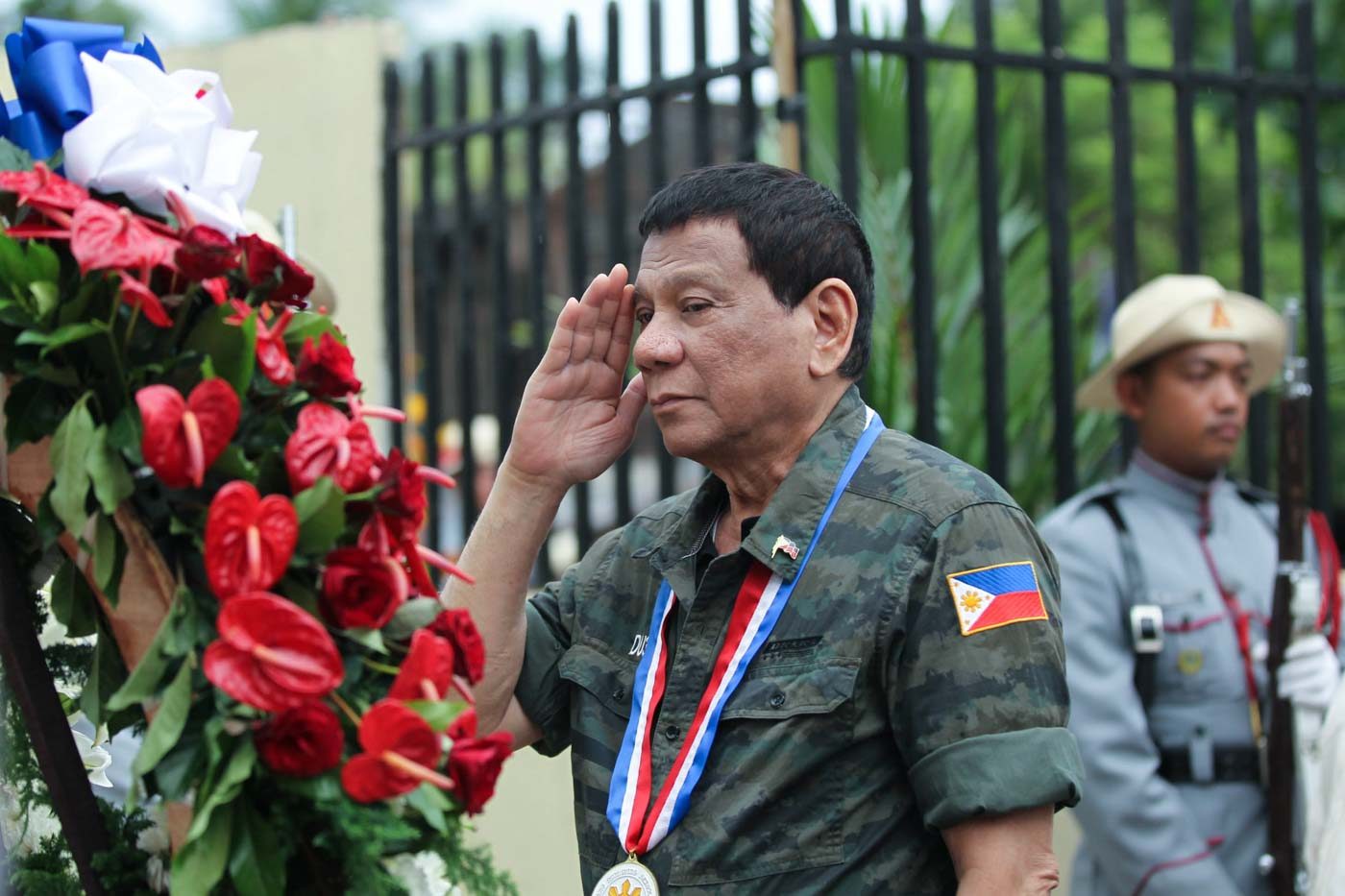SUMMARY
This is AI generated summarization, which may have errors. For context, always refer to the full article.

MANILA, Philippines – President Rodrigo Duterte’s handling of the Recto Bank boat sinking could tarnish the nationalist and “protector” image that has contributed to his popularity and political clout.
Political science associate professor Aries Arugay said Duterte’s portrayal of himself as a nationalist is largely grounded on an “anti-West rhetoric” that portrays the Philippines as an exploited country.
But in the Recto Bank incident, it’s China, Duterte’s “friend” and patron who is perceived to be exploiting 22 Filipino fishermen. (READ: TIMELINE: Sinking of a Filipino boat in West Philippine Sea by a Chinese ship)
“If we’re just exchanging one possible exploiter with another, that doesn’t really bode well for his nationalist image that is somehow a critical pillar of his political style and that somehow lends credibility to his ability to rally Filipinos,” said Arugay on Wednesday, June 26 in a Rappler Talk interview.
Filipinos now perceive Duterte as not as assertive to China as he is to Western countries like Canada, on the issue of smuggled garbage. That could be a red flag for Duterte’s image. (READ: Selective outrage? How Duterte reacted to other foreign affronts to Filipinos)
“The selectivity of it, I think, is the danger. A more calibrated and more careful approach is needed in order to preserve that image of the President as a nationalist,” said Arugay.
Duterte has railed against Western nations for “interfering” with Philippines sovereignty. In his 2016 presidential campaign, he often kissed the Philippine flag during political rallies.
What has Duterte said so far? Duterte’s first personal response to the boat sinking was to dismiss it as a “little maritime incident” and even possibly an “accident,” an echo of the Chinese government itself.
Next, Duterte accepted China’s suggestion of conducting a joint probe over the incident, which critics said was the wrong move, saying it is akin to letting a suspect participate in the investigation of their own alleged crime. Critics said it only weakens the position of the Philippine government.
Duterte, asked to give his message to the 22 fishermen, only managed to say, “Well, I’m sorry. That’s how it is.”
Within a few days, he was admitting he is powerless to stop China from fishing in Philippine waters and belittled the Constitution’s order for government to protect Philippine waters as for the “thoughtless and senseless.”
Consistent with China pivot, inconsistent with nationalist image. Arugay pointed out that Duterte’s responses are actually consistent with his policy of friendliness and even “meekness” towards China.
But they clash with his administration’s promise of an “independent foreign policy” and Duterte’s narrative of standing up to bullies.
“An independent foreign policy is the total opposite of allowing a foreign country to have a lot of leeway in the affairs of your state,” said Arugay.
The Recto Bank incident also awoke sentiments of Filipinos that had lain dormant in other issues involving China aggression.
“One thing revealed in the Recto Bank incident is that Filipinos might not really care about those islands far away but they care for Filipinos. They care about the material and economic dimensions of our territorial and maritime dispute with China,” said Arugay.
“If we’re talking about the fisherfolk who are considered to be one of the marginalized sectors of society being treated this way, that somehow animates emotional attitudes and feelings of all Filipinos,” he added.
Surveys have already found that Filipinos have little trust in China, as compared to trust in countries like the United States and Japan. (READ: Only 2 in 10 Filipinos believe China has good intentions for PH)
Weapon for a Duterte challenger. With the Recto Bank ramming occurring as Duterte wraps up the first half of his tumultuous presidency, Arugay said anyone who wishes to challenge Duterte can treat the incident as a weak spot.
“The latent nationalism of Filipinos could be activated and an aspirant could use that as fuel for a campaign, a nationalist campaign in a way that the Duterte administration could find itself on the defensive because that aspirant might say, ‘I don’t see your nationalist credentials,'” said Arugay.
Duterte had won the presidency also by capitalizing on grievances of Filipinos against the Aquino administration.
If the Duterte government continues to mishandle the Recto Bank incident in the eyes of Filipinos, it’s fair game.
“They (Filipinos) might want a president who is willing to stand up to China,” said Arugay. – Rappler.com
See more of Rappler coverage – news, in-depth stories, analysis, videos, and podcasts – on Duterte’s halfway mark here.
Add a comment
How does this make you feel?
There are no comments yet. Add your comment to start the conversation.